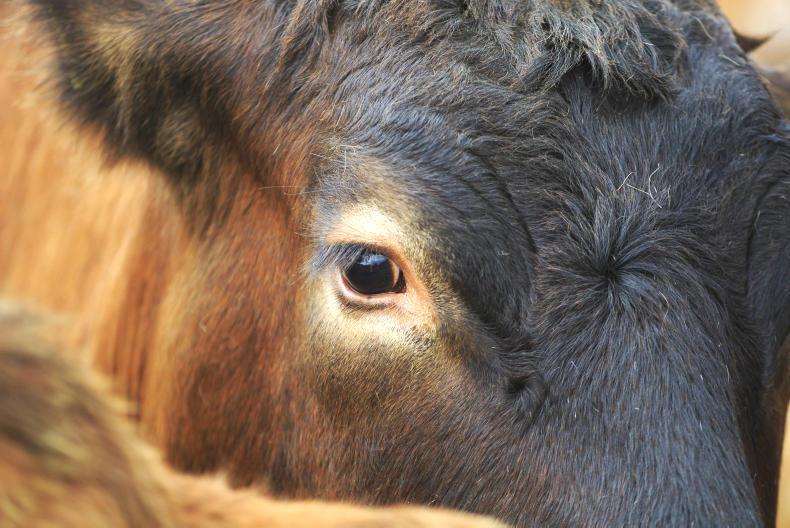Charlie McConalogue, Fianna Fáil spokesperson for agriculture, called Minister for Agriculture Michael Creed to reopen the scheme.
"The beef industry is the cornerstone of Irish agriculture and employs more people than any other sector. Suckler farmers continue to depend exclusively on direct payments for their livelihoods and the Beef Data and Genomics Programme provides essential funding to support these farmers," he said.
“It is extremely important that any underspend does not result in suckler farmers losing out on vital funds. Farming families in rural Ireland are being burdened by increased costs and price volatility, and cannot afford to lose out on essential funding programmes."
Charlie McConalogue also said the figures for BGDP were in stark contrast with the participation rates of the Suckler Cow Scheme, which were in excess of 40,000.
€40m paid out to date
The Beef Data and Genomics Programme (BDGP) is running 10,000 participants below the original government target, at 24,620, according to replies by Minister Creed to parliamentary questions from deputy McConalogue.
The Government had set a number of 35,000 farmers to be registered on the scheme, meaning the scheme is running almost 30% behind.
Since BDGP's launch last year, 29,862 applications have been received. Some 4,851 herds have since withdrawn while a further 1,172 have not submitted any genomic samples.
A total of 24,620 herds have submitted some or all of the data and 23,839 have submitted some or all of the genomic samples.
Over 22,000 farmers have received payments, amounting to €40m.
Budgetary priorities
In response to the parliamentary questions, Minister Creed said BDGP will deliver "long-term and cumulative positive effects for both suckler farmers participating in the scheme, and farmers who buy the progeny of suckler cows for further finishing. It is a significant contributor to Ireland’s reputation as a producer of sustainable beef."
However, the issue of re-opening "will have to be considered in the context of an assessment of budgetary priorities, the operation of the Rural Development Programme and the potential impact both upon the scheme itself and other schemes."
Read more
Full coverage: BDGP
Charlie McConalogue, Fianna Fáil spokesperson for agriculture, called Minister for Agriculture Michael Creed to reopen the scheme.
"The beef industry is the cornerstone of Irish agriculture and employs more people than any other sector. Suckler farmers continue to depend exclusively on direct payments for their livelihoods and the Beef Data and Genomics Programme provides essential funding to support these farmers," he said.
“It is extremely important that any underspend does not result in suckler farmers losing out on vital funds. Farming families in rural Ireland are being burdened by increased costs and price volatility, and cannot afford to lose out on essential funding programmes."
Charlie McConalogue also said the figures for BGDP were in stark contrast with the participation rates of the Suckler Cow Scheme, which were in excess of 40,000.
€40m paid out to date
The Beef Data and Genomics Programme (BDGP) is running 10,000 participants below the original government target, at 24,620, according to replies by Minister Creed to parliamentary questions from deputy McConalogue.
The Government had set a number of 35,000 farmers to be registered on the scheme, meaning the scheme is running almost 30% behind.
Since BDGP's launch last year, 29,862 applications have been received. Some 4,851 herds have since withdrawn while a further 1,172 have not submitted any genomic samples.
A total of 24,620 herds have submitted some or all of the data and 23,839 have submitted some or all of the genomic samples.
Over 22,000 farmers have received payments, amounting to €40m.
Budgetary priorities
In response to the parliamentary questions, Minister Creed said BDGP will deliver "long-term and cumulative positive effects for both suckler farmers participating in the scheme, and farmers who buy the progeny of suckler cows for further finishing. It is a significant contributor to Ireland’s reputation as a producer of sustainable beef."
However, the issue of re-opening "will have to be considered in the context of an assessment of budgetary priorities, the operation of the Rural Development Programme and the potential impact both upon the scheme itself and other schemes."
Read more
Full coverage: BDGP






 This is a subscriber-only article
This is a subscriber-only article






SHARING OPTIONS: